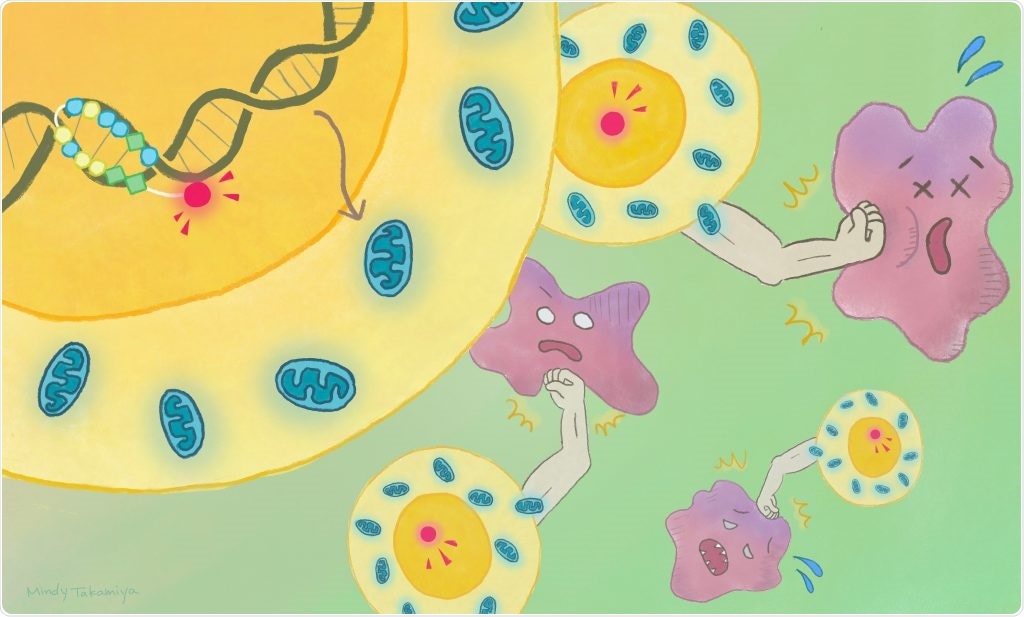A synthetic molecular code exhibits the potential of enhancing the response of certain cancer patients to immunotherapy treatments. The process includes the use of a molecule that can offer energy to anti-cancer immune cells, thereby increasing their numbers and their longevity.

The new compound EnPGC-1, which activates the mitochondria of mouse T cells, can make cancer immunotherapy more efficient. Image Credit: © Mindy Takamiya/Kyoto University iCeMS.
The research was carried out by Kyoto University researchers, headed by Hiroshi Sugiyama. The results were published in the Cell Chemical Biology journal.
Cancer cells produce molecules that target a receptor to inactivate tumor-fighting T cells.
“Therapeutics that block the immunosuppressive molecule, called PD-L1, from binding to the T cell surface receptor, called PD-1, have revolutionized cancer treatment. However, more than half of cancer patients don’t respond well to this immunotherapy,” states Madhu Malinee, the first author of the study.
One of the major reasons for this unresponsiveness is that these patients have an insufficient number of T cells that also become exhausted because they don’t have enough active energy-providing mitochondria.”
Ganesh Namasivayam Pandian, Institute of Integrated Cell Material Sciences, Kyoto University
The researchers intended to identify means to increase the mitochondria in T cells to enhance cancer patient response to PD-1 blockade monotherapy. Their goal was to activate a molecule, named PGC-1, which controls the expression of genes engaged in energy metabolism. However, a major hurdle in achieving this was identifying a way to selectively target PGC-1.
To achieve this, Sugiyama and co-workers employed a compound, named pyrrole-imidazole polyamide (PIP), that can be programmed to target a specific DNA sequence. The researchers assembled it as a molecular code, named EnPGC-1, that activates PGC-1.
The scientists discovered that EnPGC-1 activated the mitochondria of mouse T cells in the lab, leading to an increase in T cell numbers and their longevity.
Later, the scientists gave tumor-bearing mice a combination of EnPGC-1 with PD-1 blockade immunotherapy and recognized that the strategy improved anti-tumor immunity in the mice and enhanced their survival.
Since PGC-1 signaling is known to be essential for energy metabolism, EnPGC-1 also has potential for being developed as a drug to treat other diseases, like type 2 diabetes and hyperlipidemia.”
Madhu Malinee, Study First Author, Kyoto University
“Further improvements are needed before the approach can be tested for clinical use,” remarks Ganesh. For instance, the researchers aim to identify ways to deliver EnPGC-1 specifically to T cells to lessen its off-target effects.
Source:
Journal reference:
Malinee, M., et al. (2021) Targeted Epigenetic Induction of Mitochondrial Biogenesis Enhances Antitumor Immunity in Mouse Model. Cell Chemical Biology. doi.org/10.1016/j.chembiol.2021.08.001.